COP18—Doha Climate Conference
Author and Page information
- This page: https://www.globalissues.org/article/801/cop18-doha-climate-conference.
- To print all information (e.g. expanded side notes, shows alternative links), use the print version:
On this page:
Introduction
 November 26 – December 7, 2012, Doha, Qatar is the venue for the 18th annual United Nations Climate Change Conference, also known as the 18th Conference of the Parties — or COP 18.
November 26 – December 7, 2012, Doha, Qatar is the venue for the 18th annual United Nations Climate Change Conference, also known as the 18th Conference of the Parties — or COP 18.
Predictably and sadly, the same issues complained about at previous annual meetings for the past decade continue to recycle themselves:
- Lack of quality (if any) media coverage
- West stalling on doing anything
- Lack of funding
- Disagreement on how to address it
- etc.
As the past two decades have shown trying to get global agreement on tackling climate change seems to be futile. By comparison, more focused and limited interest of elites, however, are easier to push through, such as wars based on geopolitical threats (real and imaginary), or economic crises (where banks and other elites most responsible for the crises are bailed out by ordinary citizens).
Furthermore, as the West has generally shown in the past decade or more (even when their economies were doing good) paying now for something that seems to be a problem in the future is hard to accept. It is easier, therefore, to stall and keep blaming China, India and other emerging nations despite the historical inequality of those emissions. But ignoring that makes it easier to hope these emerging nations will pick up the burden of addressing emissions rises.
A summary from the Malaysian-based development organization, Third World Network, notes that once again there are disagreements on how to proceed with basic aspects of these climate discussions such as how to agree on the next round of emission reductions:
Developing countries want the Doha talks to produce increased ambition in emission reductions for the second commitment period (CP2) while developed countries seem set to maintain their currently weak targets, with uncertainty over the future review of those targets.
Developing countries are also insisting that the [new reduction targets] be established in a ratifiable legally binding amendment of [the Kyoto Protocol], that contains the quantified emission limitation or reduction objectives (QELROs) of each developed country Party.
Many developing countries also want a legal provision for provisional application of the QELROs from 1 January 2013 that developed countries do not support.
According to several developing country delegates, without provisional application on a legal basis, the reduction commitments would be rendered voluntary.
Media coverage
Generally speaking, media coverage of climate change issues and these conferences has been a mixed bag over the past decade. More recent years has seen increased interest and coverage (though many important issues are glossed over in mainstream media sound-byte style reporting).
When I wrote a similar page about a year ago regarding the previous conference, COP 17, I noted that (as with many previous conferences), I described mainstream media coverage as pathetic
and almost non-existent until the very last few moments.
I added that in reality money speaks and so short term and elite/establishment views tend to prevail, which is why governments can so quickly get the 99%
to bail out the banks and the top 1% with many trillions of dollars, while finding billions for fighting even more devastating climate change has taken almost 2 decades so far without any convincing results.
It seems like that will be the case again this year. As of writing, it is half way through the conference and scanning mainstream media headlines in the UK, I see no coverage of the conference (at least not as major news headlines). It is very possible I have missed it, but one would hope that a conference of such importance would not require much detailed look at mainstream media news headlines to find coverage of it.
Indeed, this comes at a time when the British press is facing threats of regulation following scandals about journalist practices by some tabloid papers. Ironically, the British press now fears regulation will hinder their free speech (a legitimate worry). But what free speech are they fighting for? For more narrow coverage and tabloid headlines?
It is worth quoting again an article from Media Lens about a year ago on the poor media quality coverage in recent years.
Media interest in the subject has crashed. Dr. Robert J. Brulle of Drexel University describes a
collapse of any significant coverage of climate change in the [US] media. We know that 2010 was a record low year, and 2011 will probably look much the same. If the media doesn’t draw attention to the issue, public opinion will decline.…
Equally disturbing is the variation in media performance across the globe. A wide-ranging Reuters study on the prevalence of climate skepticism in the world’s media — Poles Apart — The international reporting of climate skepticism - focused on newspapers in Brazil, China, France, India, the UK and the USA. The periods studied were February to April 2007 and mid-November 2009 to mid-February 2010 (a period that included the UN climate change summit in Copenhagen and
Climategate). Remarkably, the study concluded that climate skepticism ispredominantly an Anglo-Saxon phenomenon, found most frequently in US and British newspapers.…
And so we find that Britain and the US — the two countries responding most aggressively to alleged
threatsto human security in countries like Afghanistan, Iraq and Libya — are also the two countries least interested in responding to the very real threat of climate change.
It would be worth reading the media section of the previous conference to see more about media coverage.
President Obama was recently re-elected as President of the United States. It is not clear how much impact the devastating impact of Hurricane Sandy had on climate change policies (and it may also be too early to tell), but many certainly felt that in the days leading up to the election it may have been a factor. Perhaps, importantly, for the first time, climate denial may become a political liability in the US, and it remains to be seen how much the Republicans will hamper Obama’s climate policies.
The more extreme news organization in the US, Fox News, was found to to have 93% of their climate reporting as misleading. And this channel is a prime channel for Republican leaning viewers. This is also despite promises by Murdoch many years ago to improve climate change reporting. But it is not just Fox News, although not media outlets themselves many other influential corporations have been actively supporting misrepresentation of the science around climate change, undermining the US public’s understanding of scientific consensus around climate change.
Numerous recent reports are finding that climate scientists, far from being alarmist and scaremongering, have somewhat underestimated the speed at which climate change impacts such as extreme weather and rising sea levels will happen and that many conditions match their upper estimates rather than any median or better-scenario estimates.
For example, the conference comes at the end of a year that saw record Arctic sea ice melting, multiple global weather and climate extremes, and high temperatures.
For years countries have worried that funding for adaptation and mitigation is not affordable (rich and poor nations alike) and yet, as time goes on, adaptation and mitigation costs will be even higher.
Even the World Bank has chimed in noting that
Coal, oil and gas companies and their backers in the financial and investment industry must stop putting billions of dollars into finding and extracting new sources of fossil fuels. If they don't shift their investments, temperatures will soar four to 10 degrees C higher, devastating many parts of the world, the World Bank said Monday.
Despite years of this, things do not seem to change much. Perhaps it is because there isn’t an emotional attachment to the issue; it is distant, vague, complex. However, as David Robert notes,
Climate change is not only the economic and ecological crisis of our time, it’s also a moral crisis. What we are doing to our descendants is a moral crime. Finding ways to help people get that, feel it in their guts the way they would if someone threatened their own families, is a precondition for serious, sustained action.
More information
As the conference is still underway as this page is written, more information will be added here after the event is over.
For more about the issues from other organizations, here are some starting points:
- Climate Change coverage from Inter Press Service (IPS). (This web site carries an IPS feed.)
- Official COP 18 website
- Updates from the Third World Network
- Coverage from Democracy Now! including useful news videos
News stories from IPS
Below is a list of stories from Inter Press Service related to the Durban climate conference and its aftermath.
Fishers in Madagascar adapt to deadly seas due to climate change
- UN News

Fishing communities in the south of Madagascar are facing sometimes deadly sea conditions due to climate change, but with the help of the UN’s International Labour Organization (ILO) are finding ways to adapt to the new circumstances they face.
Women Affected by Gender-Biased Climate Change Deserve Justice
- Inter Press Service
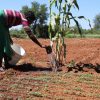
BULAWAYO, Apr 11 (IPS) - While research into the unequal impacts of climate change on women is growing, more is needed to enable them to realize their rights to climate justice.
To Mitigate Climate Change Associated Disasters That Impact the Agricultural Sector - Launch Multipronged Efforts
- Inter Press Service
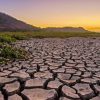
URBANA, Illinois, US, Apr 10 (IPS) - Recently, the United Nations in collaboration and the World Meteorological Organization released a report that highlighted the impacts of climate change including on agriculture.
Taking Charge: Three Actions to Help Combat Climate Change and Save Amazonia
- Inter Press Service

NEW YORK, Apr 04 (IPS) - Climate change is the defining crisis of our time––it is the ultimate equalizer from which no one is immune. The Earth's ecosystems are on the brink of collapsethreatening biodiversity and human societies in unprecedented ways at a global scale.
The Impact of Climate Change on a Biodiversity Hot Spot
- Inter Press Service
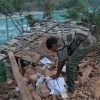
KATHMANDU, Nepal, Mar 29 (IPS) - If there is a place where the interlinkages and dependencies between the effects of climate warming and biodiversity loss are clearly at display, it’s Nepal. There is clear evidence on the impact of climate change on the country’s ecosystem considering the fact that Nepal is an important biodiversity hotspot.
World News in Brief: Climate change in the countryside, Yemen polio drive success, development and peace
- UN News

Climate change is disproportionately affecting the incomes of rural women, the poor and older populations, who also have the least capacity to adapt to extreme weather events, a new report from the UN Food and Agriculture Organization (FAO) revealed on Tuesday.
UN chief appeals for greater support for small islands fighting climate change
- UN News

More funding is needed to support Small Island Developing States (SIDS) on the frontlines of climate change, UN Secretary-General António Guterres said on Saturday in Saint Vincent and the Grenadines.
Climate Change Is Amplifying Household’s Food Insecurity, Putting More Pressure on Women’s Mental Health
- Inter Press Service

KATHMANDU, Feb 12 (IPS) - Studies have long shown that some women’s lower status in Nepali households could mean that they eat last and less and as a result lack nutrition. Experts are now looking into how this could affect their mental health, and if the growing impacts of climate change might amplify the process.
Under the Scorching Sun Kenyan Farmers Find New Ways to Beat Climate Change
- Inter Press Service

KOTIANG, KENYA, Jan 26 (IPS) - Rural Kenyans are forging a path toward a more sustainable future and protecting their lives and livelihoods from climate change through regenerative agriculture, nurturing hope for their communities and the environment.
IPS Offers Climate Change Justice Fellowship
- Inter Press Service

UNITED NATIONS, Jan 24 (IPS) - IPS is offering an exceptional opportunity for two journalists to develop their understanding of climate change justice.
Tackling health impacts of climate change and scaling up digital climate action in the spotlight at COP28
- UN News

Delegates at COP28 in Dubai on Saturday called for stronger and more resilient global health systems, which are indispensable to protecting populations from the negative impacts of climate change on health.
Restoring Indigenous Trees: New Mission to Combat Climate Change in Rwanda
- Inter Press Service
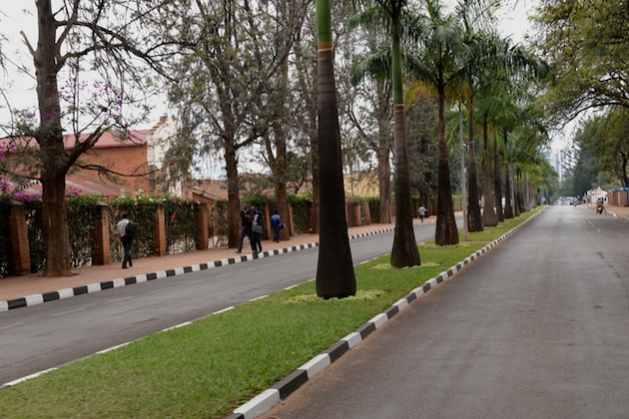
KIGALI, Dec 01 (IPS) - With the ongoing national tree-planting campaign, Rwanda seeks to replace its degraded forest resulting from charcoal production and firewood and increase the need for construction materials with new indigenous trees to combat climate change.
Climate change risks upending global fight against malaria
- UN News

Climate change and its impacts, particularly extreme weather and heatwaves, pose a “substantial risk” to progress being made to fight malaria, the UN World Health Organization (WHO) said on Thursday.
Africa Will Not Cope with Climate Change Without a Just, Inclusive Energy Transition
- Inter Press Service

NAIROBI, Nov 24 (IPS) - A just transition should be viewed as an opportunity to rectify some of the wrongs where women are not prioritised in the energy mix, yet their experience of the impact of climate change is massive, says Thandile Chinyavanhu, a young South African-based climate and energy campaigner with Greenpeace Africa.
GLOBAL COOPERATION ON CLIMATE CHANGE: What Have We Achieved and What Needs to Happen Next?
- Inter Press Service

NEW YORK, Nov 22 (IPS) - Climate change has been a source of concern among the international community since the 1970s. Yet, almost fifty years since the issue was first raised in international diplomatic circles by prominent scientists, the situation continues to deteriorate, with rises in temperatures and extreme weather causing ever-magnifying problems around the world.
Time to Convert Climate Change Rhetoric into Action, Says WFP's Gernot Laganda
- Inter Press Service

HYDERABAD, INDIA, Nov 14 (IPS) - 'If you ask what climate justice is, then the litmus test for climate justice is at the local level. So, climate justice needs to be judged by how many people are protected from climate-vulnerable conditions that they have no hand in creating.' – Gernot Laganda, Director of Climate Change Adaptation and Disaster Risk Reduction at the United Nations World Food Programme (WFP)
It is crucial to narrow the gaps and ensure that climate finance goes to where people are most vulnerable, says Gernot Laganda, Director of Climate Change Adaptation and Disaster Risk Reduction at the United Nations World Food Programme (WFP)—especially as the most fragile states only receive USD 2.1 per capita while non-fragile states receive USD 161.
Explainer: How AI helps combat climate change
- UN News

Artificial intelligence (AI) is already making inroads worldwide in health, education and industry, but how can this cutting-edge technology help the world combat and mitigate the effects of climate change?
‘Stop the madness’ of climate change, UN chief declares
- UN News

UN Secretary-General António Guterres on Monday called on the world to “stop the madness” of climate change as he visited the Everest region in Nepal where melting glaciers are putting entire communities at risk of extinction.
Climate Change Turns African Rivers into Epicentres of Conflict
- Inter Press Service

NAIROBI, Oct 24 (IPS) - Almost all major river basins in Africa have become the epicentres for conflicts over the last 20 years, and agricultural yields on the continent could drop by up to 50 percent in the coming years owing to the drying up of 'traditional' water sources, thanks in part to effects climate change and degradation of the environment, the inaugural edition of the State of Africa's Environment Report 2023 released in Nairobi finds.
World News in Brief: Sandstorm alert, albinism and climate change, rights in Peru
- UN News

Sand and dust storms are increasingly threatening people’s health, safety and livelihoods – and climate change is making matters worse.
Wrecked by Climate Change, Farmers in Kashmir Shift to Lavender Cultivation
- Inter Press Service

BIJBEHARA, INDIA, Sep 29 (IPS) - Creating resilience is crucial to climate change justice. In Bijbehara, a hamlet south of Kashmir's capital, Srinagar, lavender farming has meant farmers grappling with unseasonal rains, prolonged heat waves, and severe water scarcity have found a new means of survival.
Peru Faces Challenge of Climate Change-Driven Internal Migration
- Inter Press Service

LIMA, Sep 28 (IPS) - Nearly 700,000 people have migrated internally in Peru due to the effects of climate change. This mass displacement is a clear problem in this South American country, one of the most vulnerable to the global climate crisis due to its biodiversity, geography and 28 different types of climates.
Bangladesh's Battle Against Climate Change: A Nation at Risk
- Inter Press Service

DHAKA, Sep 01 (IPS) - Bangladesh faces one of its most significant challenges ever — climate change. Rising sea levels, extreme weather events, and changing rainfall patterns are already profoundly impacting this nation.Bangladesh, a picturesque land of rivers, lush green landscapes, and a vibrant cultural heritage, faces one of its most significant challenges ever — climate change.
Africa Climate Summit: a Critical Opportunity for Collective Action on Climate Change
- Inter Press Service
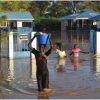
NAIROBI, Sep 01 (IPS) - As an African, I have seen first-hand the devastating effects of climate change. I have met communities displaced by floods in Malawi, Mozambique and Zimbabwe. I have spoken to farmers from Northern Kenya who have lost their crops to drought. These experiences have made me acutely aware of how urgent it is to address the climate crisis.
African children bearing the brunt of climate change impacts
- UN News

Children in Africa are among the most at risk from climate change impacts but are being woefully deprived of the financing necessary to help them adapt, survive and respond to the crisis, the UN Children’s Fund (UNICEF) said in a new report on Friday.
Climate Change Is Making Us Sick, Says WHO Envoy
- Inter Press Service

BULAWAYO, Aug 02 (IPS) - Climate change is making us sick. It has become urgent to build resilient health systems to secure humanity’s well-being, says the special envoy for climate change and health of the World Health Organization (WHO).
Spike in dengue cases due to global warming, warns WHO
- UN News

Global warming marked by higher average temperatures, precipitation and longer periods of drought, could prompt a record number of dengue infections worldwide, the World Health Organization (WHO) warned on Friday.
New Research Seeks Breakthrough in Understanding Global Warming and the Ocean
- Inter Press Service

SYDNEY, Jul 19 (IPS) - The Canada-based Ocean Frontier Institute is very clear about the significance of a new collaborative ground-breaking ocean research program. Global warming cannot be effectively tackled, and human life cannot survive on Earth without the ocean.
Climate Change and Development
- Inter Press Service
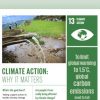
BEIJING, Jul 04 (IPS) - There is little doubt that human activity is accelerating climate change. Our activities are causing global warming and potentially disastrous climate change.
Legal protection essential for people displaced by climate change: UN expert
- UN News

An independent UN-appointed climate expert on Tuesday called for full legal protection to be given to those displaced by the impacts of climate change, to guarantee their human rights.
Author and Page Information
- Created:
 Global Issues
Global Issues